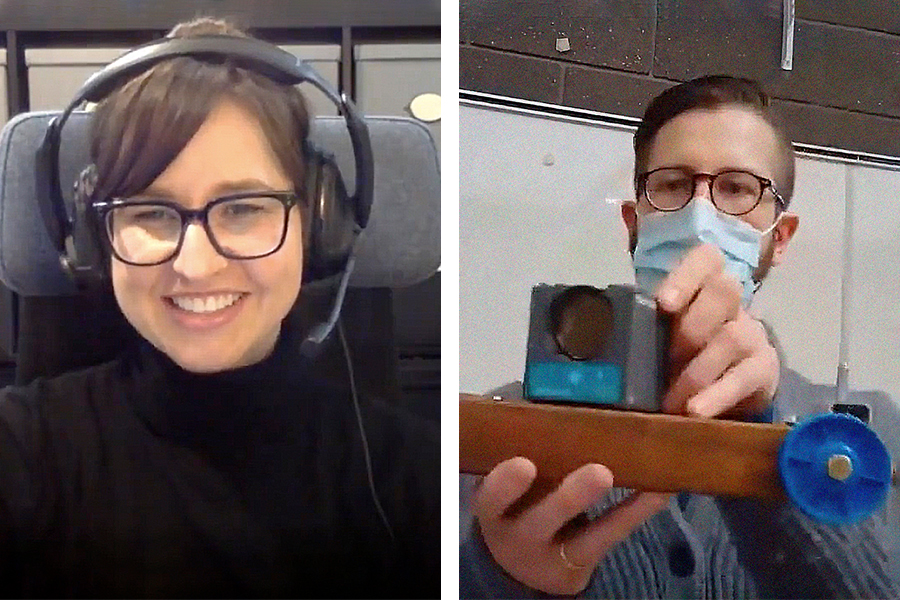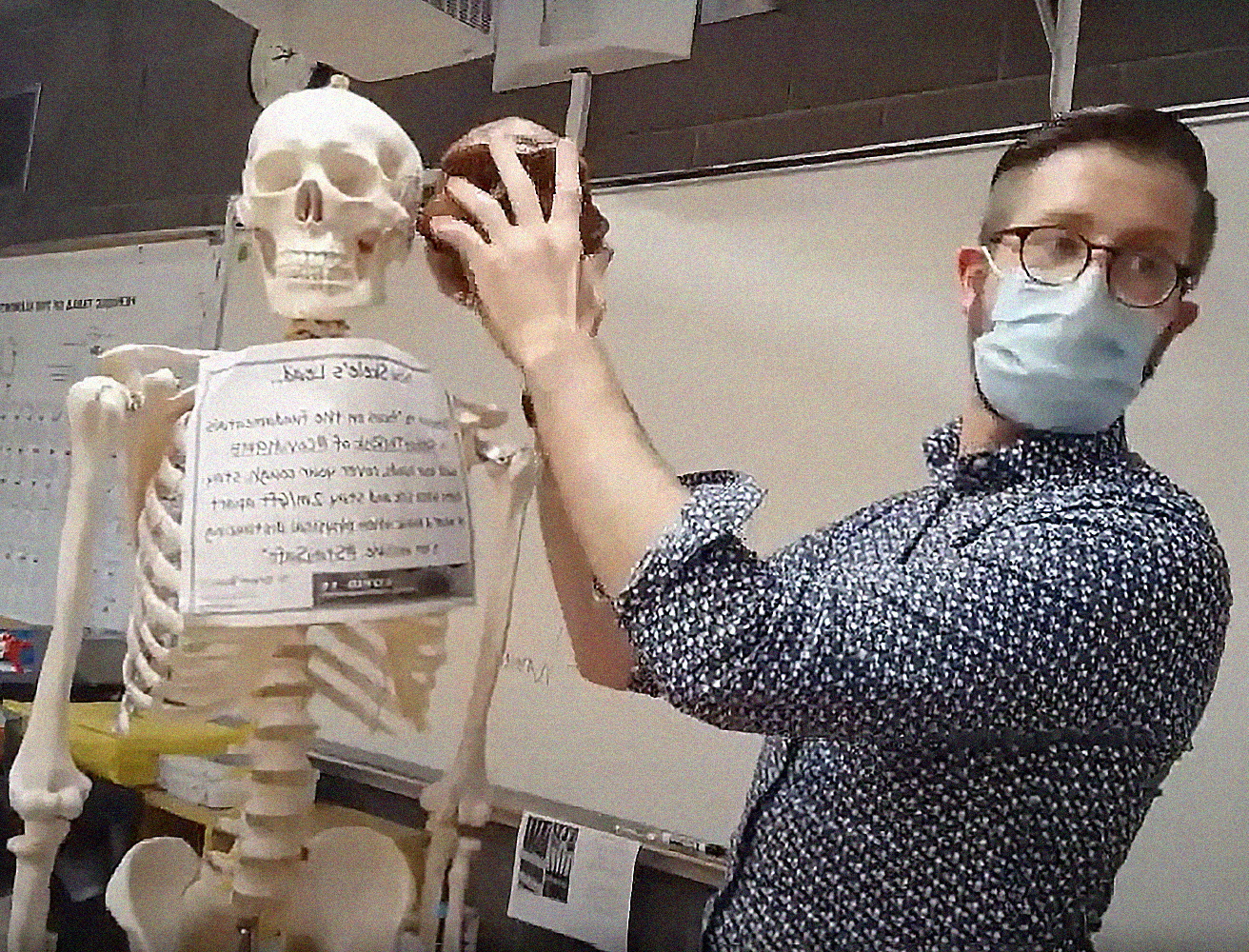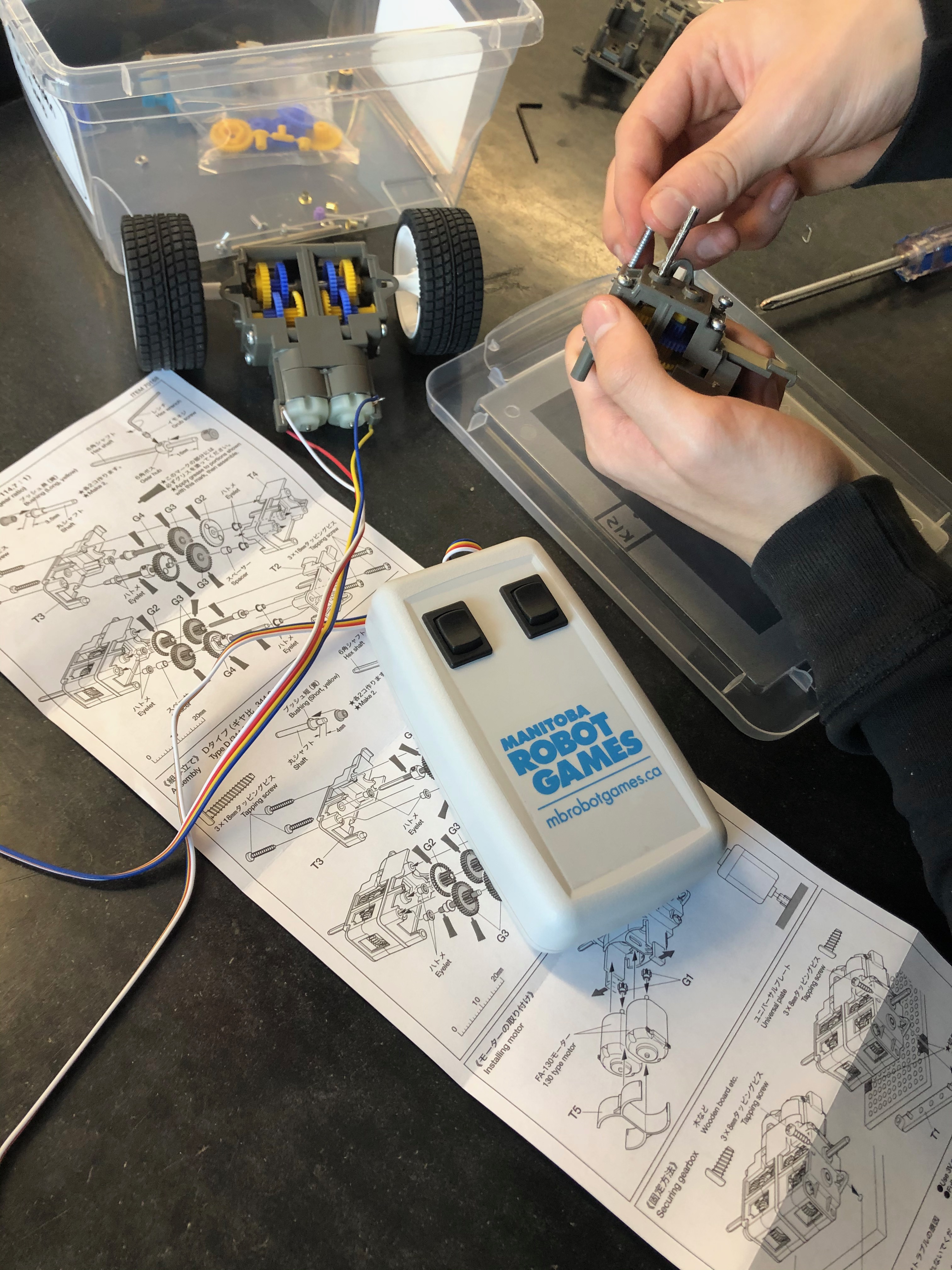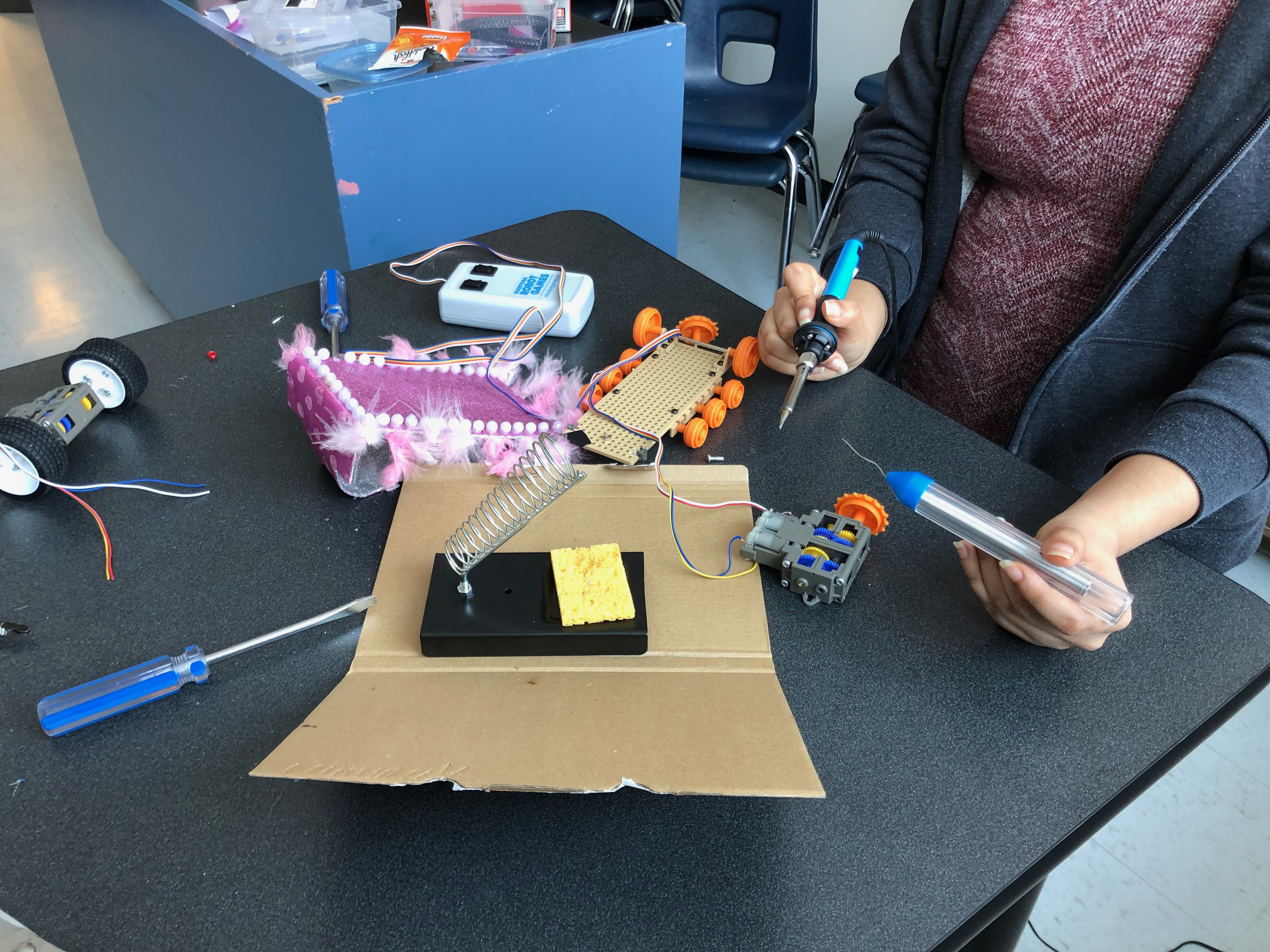
Christine Wren was an engineer and husband John was a lab instructor with a PhD when they decided to change careers to teaching.
Engineering their careers in education
Career-switching couple finds happiness, stability in classroom
Christine Wren (BSc (M.E.)/10, BSc/10, BEd/21) was building on her 10-year career as a mechanical engineer.
Meanwhile, her husband, John Wren (BSc/08, PhD/14, BEd/15) was a lab instructor with a PhD under his belt.
Although the successful, happily married couple were content in the careers, something was missing.
There were parts of the job they loved most, and they wanted more of it.
“I enjoyed interacting with people, interacting with students— particularly mentoring young undergraduates and graduate students in our lab every summer,” recalls John, adding that a career as a professor or a chemist would not have had the element of human-connection he craved.
Both coming from a long line of teachers in their families, the Wrens decided to change careers and move into education.
John was first to take the plunge. And while the change was dramatic, it was overwhelmingly positive.
“I certainly came into the program a hardened science major, believing in grinding students down and rebuilding them from the ground up—all the classic science teacher tropes,” John said, adding he experienced a dramatic shift in approaches at the Faculty of Education.
‘…Education instructors taught from a place of compassion. In science, you’re making change in the science field. But in education you’re making change in people.’
“But education instructors taught from a place of compassion. In science, you’re making change in the science field. But in education you’re making change in people,” John said.
Christine was nervous about changing careers: Had she made the right choice?
“In education I feel like they focus more on the building you up as a person because you’re going to be going out there and impacting people’s lives and impacting students as learners and people,” Christine said. “And so, it just felt like a happy place to be.”
The faculty’s supportive faculty, as well as its focus on process and learning surprised her.
The right choice
“It made me feel like I made the right choice.”
Both John and Christine come from families with a long history of teaching. And pursuing a bachelor of education at University of Manitoba was a natural choice. Besides, both of their fathers, Bernie Schulzki (BEd/’84) and Graham Wren (BEd/’90) completed their BEd degrees at U of M.
“There’s a long tradition of the BEd program being accessible to young parents,” John says. “When I was a child, my dad used to take me into classes and he would hide toys in his briefcase”
One of the greatest qualities that both Christine and John learned in the BEd program was empathy, mindfulness and adaptability—all qualities that came into play during the pandemic.
When the pandemic started, Christine was teaching during practicum in a small school. At the time, she was using her background in engineering, starting a coding club as well as a robot fight club—experiences the students never would have had otherwise.
Unfortunately, COVID-19 saw those clubs cancelled, but she was able to send the robots home with her students.
Teachers need to be compassionate
“I felt like that was like that was something outside of the regular classroom time that fostered a spark of interest in science and maybe gave them hope for what they want to do in the future,” Christine said.
As the pandemic wore on, greater inequities among students became apparent. Some students didn’t have Internet access, and had to rely on picking up printed assignments from the school. The lack of Internet access also made communicating with these students much more difficult.
“It was such a chaotic time. We were doing everything we could to make sure that nobody was left behind,” Christine said, adding that educators became more innovative with their approaches.
Because he was taught to use Google Classroom in the BEd program, John was seen as an expert in the use of remote-learning technology. As a result, he led professional-development sessions, helping other educators to learn how to use the software—now considered an essential skill during pandemic lockdowns.
He also learned that during the pandemic, teachers needed to be compassionate. For example, he and other educators explored different ways of assessing students.
“Grades and assessment are not as important as learning,” he said.
Christine was inspired by the resilience of the Grade 9 and 10 students she worked with during the pandemic.
“Kids surprise you with how much they can do. And I think if you believe in the kids and give them a chance, they will rise to the occasion,” Christine said.










